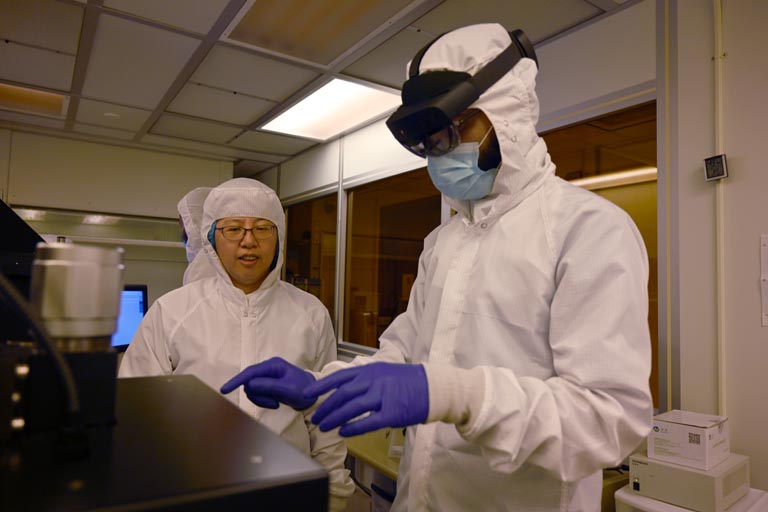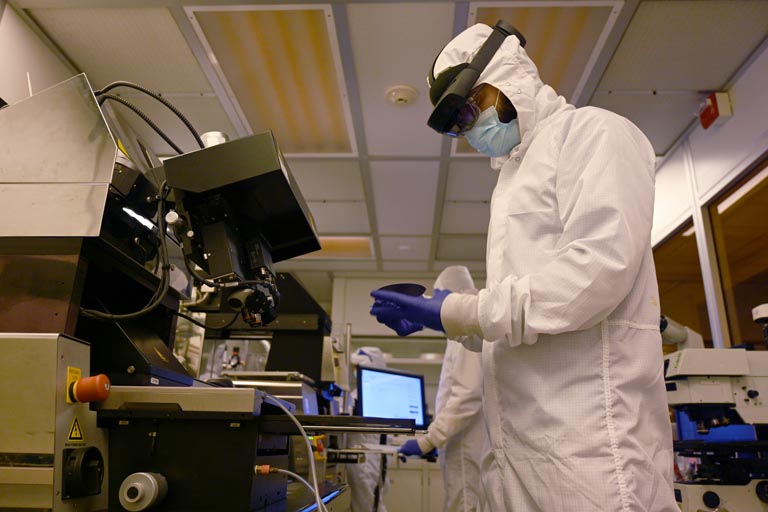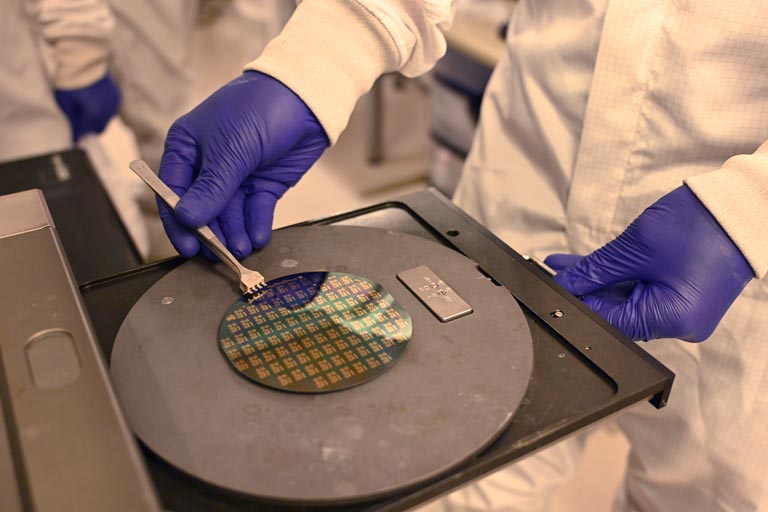November 14, 2024
Mizzou Engineers recently received a grant to enhance semiconductor fabrication education using artificial intelligence and extended reality.

Microsystem Research Laboratory’s Cleanroom facility.
Mizzou researchers don’t just talk about big ideas- they make them a reality. A Mizzou team led by Fang Wang, associate teaching professor of information technology, is now using extended reality and artificial intelligence tools to transform how students learn.
The National Science Foundation recently awarded Wang a nearly $400,000 grant for her project, “Enhancing hands-on cleanroom semiconductor fabrication education with AI-assisted extended reality.” The initiative aims to transform how undergraduate students learn about semiconductor fabrication by introducing advanced Extended Reality (XR) and Artificial Intelligence (AI) technologies into the classroom and lab environments.
“At the heart of this initiative is a need to address both practical and logistical challenges in semiconductor education,” Wang, who is also director of the Collaborative Research Environments for Extended Reality (CREXR) Lab, said. “The semiconductor fabrication course is crucial to the curriculum, as it reinforces theoretical knowledge from the classroom, provides hands-on experience and prepares students for future careers. However, the challenge is traditional methods rely heavily on cleanroom access and costly equipment, limiting how many students can gain this essential experience.”
Wang says that she recognized the potential of virtual and extended reality in microfabrication lab training because of her background in the semiconductor industry. A few years ago, her team developed a virtual reality prototype for photolithography—a key process in cleanrooms—which offered valuable insights and laid the groundwork for this research.

The project leverages XR technology to offer a scalable, immersive learning experience that allows students to practice semiconductor fabrication techniques in a virtual environment, then apply them in a real cleanroom environment. The integration of AI into the XR system provides real-time guidance and feedback, making the training both interactive and highly personalized.
“Our XR-based microfabrication training modules introduce advanced features and innovations,” she said. “They’re portable, cost-effective and hands-free, with in-situ assistance while on task, enhanced with AI to create a more supportive learning environment.”
An interdisciplinary approach to engineering education
The project is a collaboration between the College of Engineering and College of Education & Human Development faculty at Mizzou, designed to make semiconductor training more accessible, efficient and engaging.
Wang is collaborating with Xinhao Xu, an associate professor at the Mizzou College of Education & Human Development. Xu provides vital educational insights that shape the design, testing and assessment of the learning modules. She is also working with Mahmoud Almasri, professor of electrical engineering and computer science, in the cleanroom he uses for research in Naka Hall.
“Having such interdisciplinary talent and resources readily available on campus is invaluable,” Wang said. “Expertise in semiconductor research and education with access to cleanroom facilities, VR/AR technical skills and facilities, and educational expertise are all essential to making this project possible.”

This project combines cutting-edge technology with educational expertise to prepare students for careers in the semiconductor industry. Using virtual reality, mixed reality and hands-on cleanroom training, students will start with simulated exercises and advance to real-world fabrication.
The approach aims to help students develop technical skills and critical thinking abilities, while also encouraging more students to explore opportunities in an emerging field.
“Our design integrates participatory learning, scaffolding and triangulated assessment rooted in multiple educational theories,” Wang said. “It is imperative to offer hands-on experience to undergraduate students at an earlier stage, engaging a broader pool and preparing them for a wide variety of semiconductor careers.”
Choose a university developing new methods of educating the engineers of the future. Choose Mizzou Engineering!